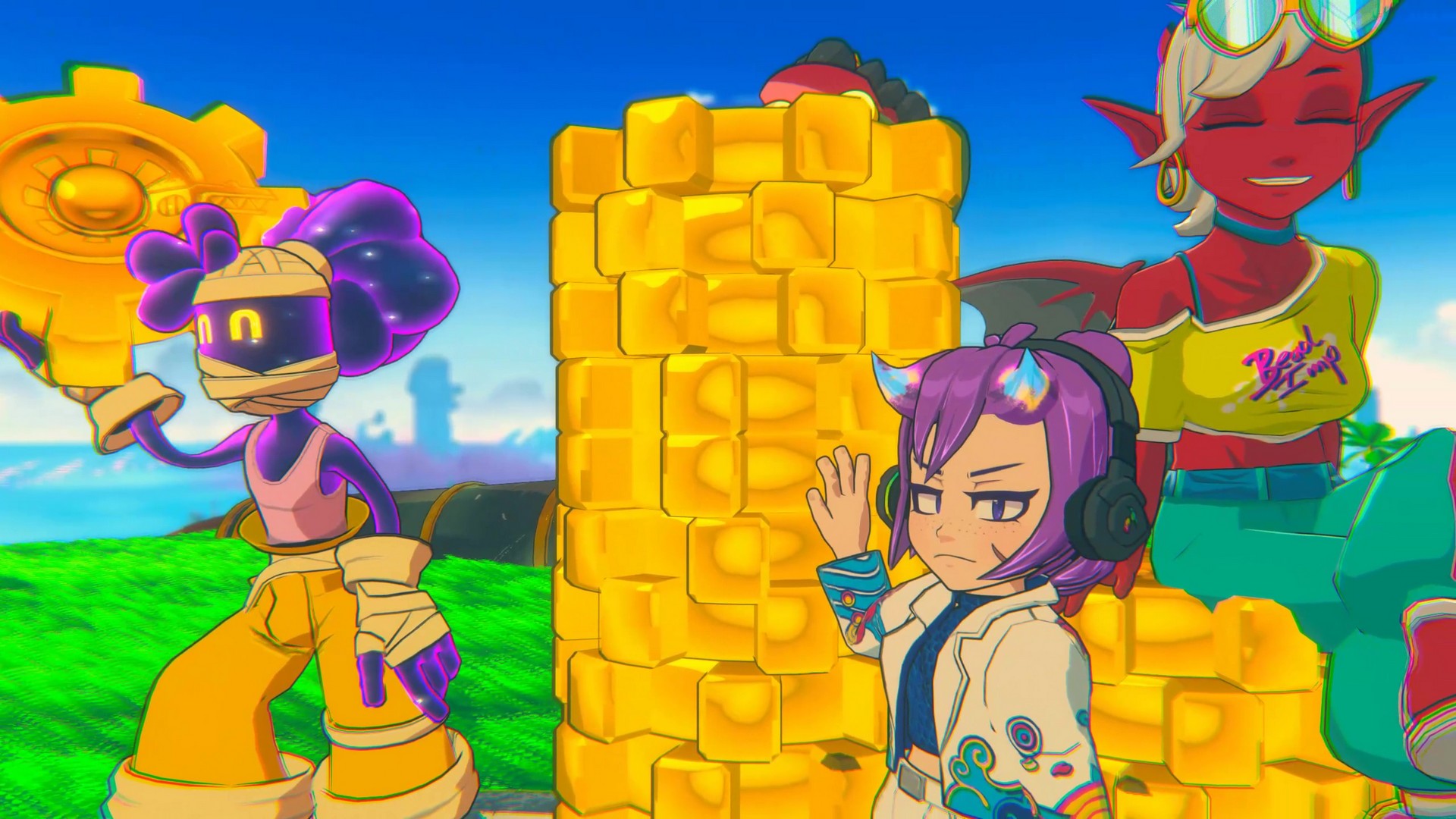Your favourite game developers... before they were famous
Bethesda, Rare, DICE, Rockstar we reveal their bizarre pasts
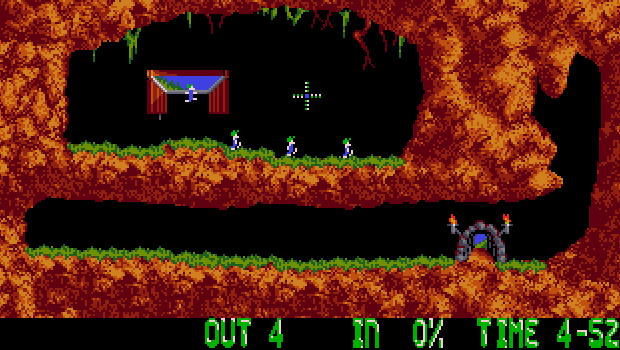
From small beginnings...
Remember your first job? Chances are it was more do you want fries with that than we expect this game to define the next generation of consoles. Most people start at the bottom and work their way up. Its the same for development studios. Few come out fully fledged, making AAA games from the start. Many build knowledge by making questionable ports or even more questionable licensed stuff, seeking cash-flow before chasing acclaim. The end result is often a strange and sometimes embarrassing heritage.
Thats why weve taken a look back at some of the biggest developers working today, and unearthed the quirky titles from their distant (and sometimes not-so-distant) pasts. Most are by no means awful, showing off fledgling talents and the burning passion of youth, but some are genuinely bizarre. Its worth noting that studios like Valve and Kojima Productions have always made great games in keeping with their core values theres no Donald Duck: Going Quackers skeletons in their closets--which is why they dont appear in this list.
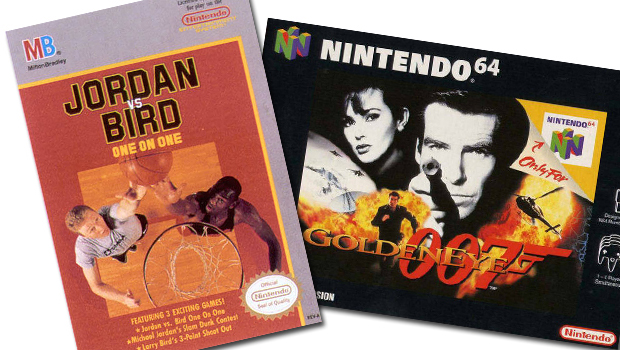
Rare makers of GoldenEye, Banjo and Kinect Sports
UK developer Rare has created or been involved with a staggering 130 games since starting up in 1986. Its break-out year was 1994 when Rare delivered Killer Instinct (Arcade) and Donkey Kong Country (SNES), and since then the studio has developed some of the most popular games ever including GoldenEye, Perfect Dark, Banjo Kazooie and more recently the technically impressive Kinect Sports titles for their new Microsoft owners.
However, before they were the darlings of Nintendo (and Microsoft), Rare earned a living making games like Jeopardy (1988), Wheel of Fortune (1988), and Sesame Street 123 (1989)--all for the NES. Bizarrely, for a British studio, they also made or contributed to several US sports games including Jordan vs Bird: One on One (1989), which boasted three exciting game modes and some questionable box art.
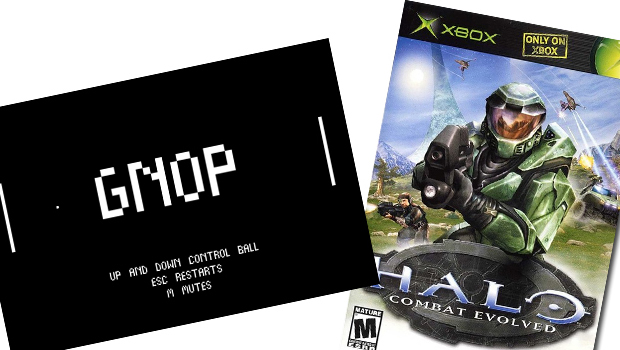
Bungie makers of Halo and Destiny
No-one is better at sci-fi shooters than Bungie. Even before the developer released Halo for the original Xbox (the game that undoubtedly tipped the Xbox from failure to success) the team was creating incredible titles for Mac like the Marathon Trilogy (1994-96), Myth (1997-99) and Oni (2001) for PS2. Once the crown-jewel in Microsofts list of exclusive developers, Bungie is now in a 10 year publishing agreement with Activision, which will see the release of next-gen action game Destiny.
Like many other major development studios, though, Bungie sprang from humble beginnings. The first title created by an embryonic version of the company (founder Alex Seropian working on his own) was Gnop!, a free Pong clone for PC. When Jason Jones entered a collaboration with Alex, Bungie was born, and Gnop! was closely followed in 1991 by a military action game called Operation: Desert Storm and an RPG called Minotaur (1992). "I grew up on the Apple II and then the Mac," says Jason Jones, speaking on Bungie.net, "I wrote all this C code for PCs though, before I even went to school. This was the heyday of PCs, with Wing Commander and stuff. The PC market was really cutthroat, but the Mac market was all friendly and lame. So it was easier to compete."
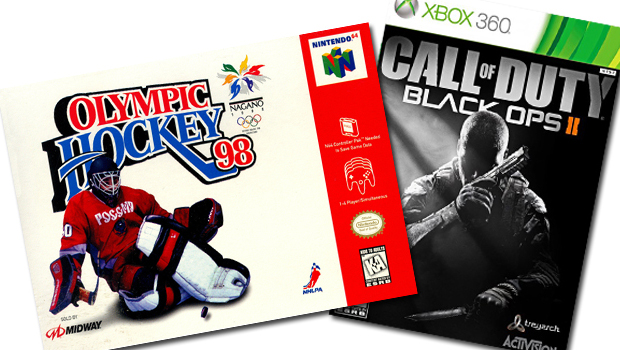
Treyarch makers of Call of Duty Black Ops
Founded in 1996, Treyarch is a relative new-comer to the development scene. Once the Robin to Infinity Wards Batman, Treyarch are now on a level-footing with their Call of Duty partners at Activision--developing Black Ops from promising solo release to a young, exciting franchise in its own right: a franchise that just happens to have produced two of the best selling games in history. Although their rise to fame comes as no great shock--even their early Spider-Man and Tony Hawk games were good--Treyarch has a bunch of unusual titles in its past
Did you know that Treyarch has worked three ice hockey games, including a pair of decent NHL 2K titles for rival publisher 2K? Their first game--Olympic Hockey Nagano 98--wasnt as successful, receiving a score of 0 from one review. Ouch. It was also responsible for the Triple Play baseball series from 1999 to 2001, and the company has also created a surfing game called Kelly Slaters Pro Surfer (2002).
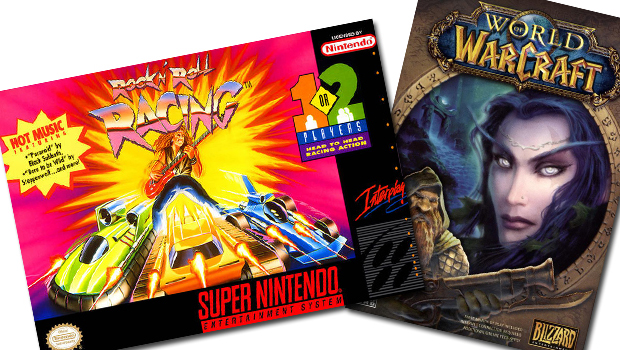
Blizzard makers of World of Warcraft and Starcraft
At one time, World of Warcraft had more than 10 million subscribers, making it the most popular MMO ever and it is just one of Blizzards insanely popular PC franchises. The developer is also responsible for the Diablo and Starcraft series, which continue to dominate PC via sequels and expansions. Diablo III is even heading to PS3 later in 2013. The company is now part of Activision Blizzard, one of the largest publishers in the world, and certainly one of the most profitable.
Blizzard has only been called Blizzard since 1994, and the current company only has a couple of unusual games in its past, including The Death and Return of Superman (1994) and Justice League Task Force (1995). However, between 1991 and 1994 Blizzard was known as Silicon and Synapse, a company that kicked out an eclectic bunch of ports including Battle Chess (1992), RPM Racing (1991) and MicroLeague Baseball (1992) to ease themselves into game development. Speaking to IGN back in 2001, co-founder Allen Adham says: Our first originals were The Lost Vikings and Rock & Roll Racing for Nintendo. Those two titles together garnered us a Developer of the Year award and that combination of critical acclaim and sales success is what really put us on the map as a game developer. The rest is history.
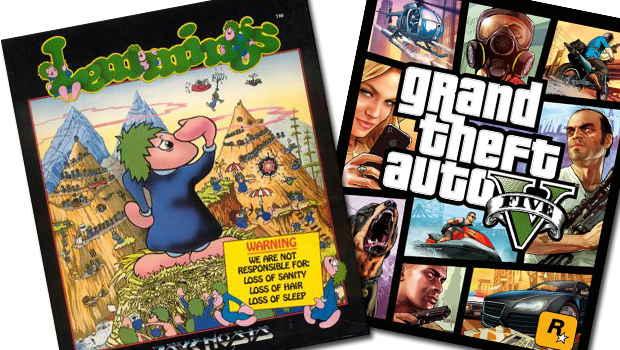
Rockstar North makers of Grand Theft Auto
Perhaps the most well-known developer in the world, Rockstar North is the gate-keeper of the Grand Theft Auto franchise. The latest instalment, GTA 5, is due this September and it tops our list of the 100 Most Anticipated Games of 2013. With good reason too, as previous games have consistently gathered 90%+ reviews across the board and generated millions of sales on whatever platform theyve appeared. However, before becoming Rockstar North in 2002, the team went by the name DMA Design, and created a number of interesting early titles.
DMAs first outing was Menace (1988), which--rather than being a pre-cursor to Bully--was actually a side-scrolling space shooter. Although it gathered average scores from critics, DMA followed it up with Blood Money (no relation to Hitman) in 1989, which was roundly praised. However, their break-out hit was Lemmings in 1991 for Amiga and PC. I've since met many people that were around 6 or 7 years old at the time, who have told me they used to play Lemmings, says former DMA man Mike Dailly, in his History of DMA Design. There have been very few games with such a cross section of players; Mario games are the only other ones I can think of sincenot even the Sonic games are played by such a wide cross section of ages. It wasnt until 1997 that the first Grand Theft Auto appeared, and the studio has been making more mature-themed games ever since all with a slice of that cheeky Lemmings humour.

Ubisoft Montreal makers of Assassins Creed
Ah, Ubisoft Montreal. Home of Assassins Creed, Splinter Cell, the Prince of Persia remakes, Far Cry 3, Watchdogs and all kinds of other high-profile games, most of which involve stabbing men in the face. Despite having its HQ in Paris, Ubisofts Montreal Studio is the heart of the company, and its one of the few studios in the world to have consistently delivered high-quality games throughout this generation and the last. Its currently working on Watchdogs and Assassins Creed Black Flag for PS4, in collaboration with several other Ubisoft studios.
Wasnt always the case, though. Montreal was originally planned as a studio for developing mass-market, kids games. Its first game was Tonic Trouble (1999), which followed a cartoonish character called Ed, living in a world where vegetables had become killers. The team followed that up with Donald Duck: Going Quackers (2000), which released to a chorus of meh on PC. So it came as something as a shock when Montreals third game, in 2002, turned out to be the Xbox exclusive, multi-award winning stealth outing Tom Clancys Splinter Cell. The rest, as they say, is history.
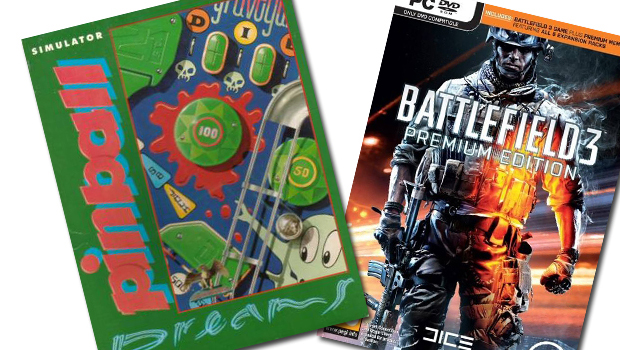
DICE makers of Battlefield
You know DICE as the creators of the incredible Battlefield series, which will spawn its fourth numbered title later in 2013. Originally a hit on PC (with Battlefield 1942, which released in 2002) the Battlefield series has spread onto console via the Bad Company spin-off, and remains the only credible opposition to Call of Duty in the military shooter space. DICE has also made several other titles since 2002, including Mirrors Edge and the under-appreciate RalliSport Challenge games, but Battlefield remains its premier offering.
But why is the Swedish developer called DICE? Its actually an abbreviation of Digital Illusions Creative Entertainment, which was the lengthy name under which it released its first handful of games. Pinball Dreams (1992), Pinball Fantasies (1992), and Pinball Illusions (1995) were DICEs originals and they were genuinely great sims. The developer went through a period of releasing racing games throughout the late 90s, culminating in RalliSport Challenge 2 in 2004 (for Xbox), which remains one of the best (but least played) racing games ever made.

Bethesda makers of Skyrim and Fallout 3
Bethesda Softworks--now known as Bethesda Game Studios--is responsible for the three best RPGs of this generation: Elder Scrolls IV: Oblivion, TESV: Skyrim and Fallout 3. As a publisher, they constantly cherry-pick some of the most interesting new games like Rage and Dishonored, although arent beyond releasing the odd duffer like Rogue Warrior and Hunted: The Demons Forge. No-ones perfect. Look back into their long history, though, and youll see some surprising roots,
American Football, Ice Hockey, Drag Racing, 10-pin Bowling--Bethesda Softworks was a prolific producer of sports games from 1986-2001. Ironically, Wayne Gretzky Hockey (1988) was the reason Treyarchs Olympic Hockey 98 received a score of zero, as reviewers claimed the two games were virtually indistinguishable. Other quirky titles lurking in Bethesdas past include the 1991 NES version of Home Alone, and a version of Wheres Waldo (1991) for NES. It wasnt until 1994 (after several hit and miss Terminator games) that they produced the first Elder Scrolls title, ES Arena.
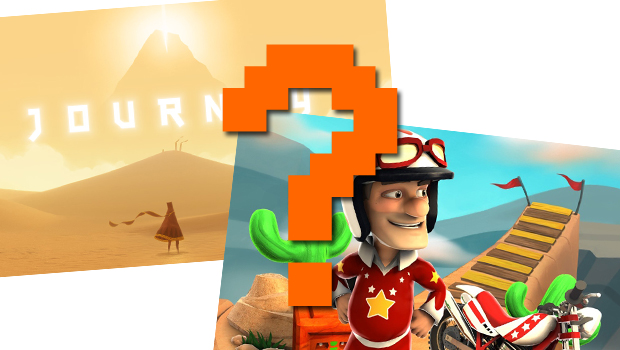
The next big thing?
So there you have it--the sometimes embarrassing, sometimes proud history of your favourite studios laid bare. It shows that you can never really tell where the next blockbuster game is coming from, and gives a glimpse into the way the gaming industry has grown up. As ever, let us know your thoughts below. Why not tell us about the small studios you think will be dominant in the next generation.
Want to sip more sweet nectar from the cup of reminiscence? Check out our special What Generation of Gamer Are You? quiz. Alternatively, why not gaze into the future and find out Everything We Know About PlayStation 4. Look forward, or look backwards your choice.

Weekly digests, tales from the communities you love, and more
You are now subscribed
Your newsletter sign-up was successful
Want to add more newsletters?

Every Friday
GamesRadar+
Your weekly update on everything you could ever want to know about the games you already love, games we know you're going to love in the near future, and tales from the communities that surround them.

Every Thursday
GTA 6 O'clock
Our special GTA 6 newsletter, with breaking news, insider info, and rumor analysis from the award-winning GTA 6 O'clock experts.

Every Friday
Knowledge
From the creators of Edge: A weekly videogame industry newsletter with analysis from expert writers, guidance from professionals, and insight into what's on the horizon.

Every Thursday
The Setup
Hardware nerds unite, sign up to our free tech newsletter for a weekly digest of the hottest new tech, the latest gadgets on the test bench, and much more.

Every Wednesday
Switch 2 Spotlight
Sign up to our new Switch 2 newsletter, where we bring you the latest talking points on Nintendo's new console each week, bring you up to date on the news, and recommend what games to play.

Every Saturday
The Watchlist
Subscribe for a weekly digest of the movie and TV news that matters, direct to your inbox. From first-look trailers, interviews, reviews and explainers, we've got you covered.

Once a month
SFX
Get sneak previews, exclusive competitions and details of special events each month!
